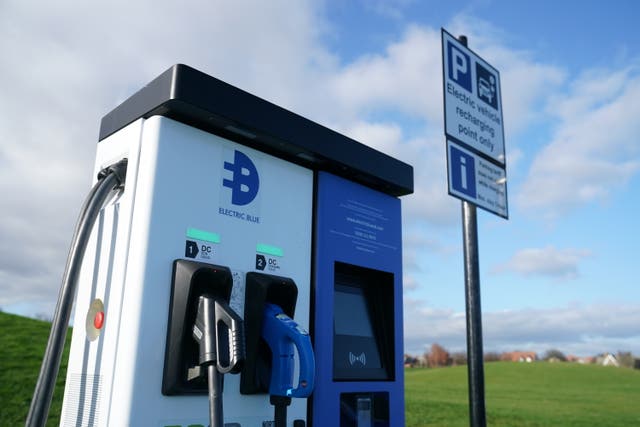
Clare Foges 6pm - 9pm
13 February 2021, 00:24

The Department for Transport (DfT) said it is looking into improving how electric cars are charged.
Charging an electric car will be “easier” than refuelling a petrol or diesel vehicle, the Government has pledged.
The Department for Transport (DfT) is looking into improving how electric cars are charged by simplifying payments and increasing reliability, in order to deliver on its commitment to end the sale of new petrol and diesel vehicles by 2030.
It has proposed the introduction of contactless payment at charge points, forcing operators to provide a 24/7 call helpline for drivers and making location data, power rating and price information more accessible.
The DfT said: “These proposals will ensure that it is as easy – or even easier – for drivers to charge their car as it is to refuel a petrol or diesel vehicle.”
It was also announced that small businesses and those in leasehold and rented accommodation will receive money to install electric vehicle charge points.

The Electric Vehicle Homecharge Scheme (EVHS) will provide up to £350 towards a charge point, and is to be expanded to target people in rented and leasehold accommodation.
Transport Minister Rachel Maclean said: “Whether you’re on the school run or travelling to work, or don’t have access to a private parking space, today’s announcement will bring us one step closer to building and operating a public charge point network that is affordable, reliable and accessible for all drivers.
“As the UK accelerates towards net zero emissions by 2050, we are determined to deliver a world-leading electric vehicle charging network, as we build back greener and support economic growth across the country.”
Industry body the Society of Motor Manufacturers and Traders said on-street public charging and rapid charge points on the road network will be needed.
Mike Hawes, chief executive of the body, said: “We urgently need more charging points to accelerate our transition to electric motoring, so this announcement is welcome and a step in the right direction.
“As we race towards the phase out of sales of new petrol and diesel cars and vans by 2030, we need to accelerate the expansion of the electric vehicle charging network.”
Jack Cousens, head of roads policy for the AA, said: “For the here and now, there are sufficient charge points in relation to the number of EVs (electric vehicles) on the road.
“But with all focus on 2030, more charge points will be needed to help encourage uptake and dispel drivers’ fears of running out of charge.
“In simple terms, drivers want charge points to be as easy and simple to use as a fuel pump.
“They don’t want to have a multitude of apps or membership cards, but the ability to simply understand how much it will cost them and pay by card.
“We will also need a mixture of locations to come forward. As well as charging at work and home, more destination charging will be needed.”
Mr Cousens added that supermarkets, leisure centres, shopping centres and sports grounds could be used as potential charge point locations.